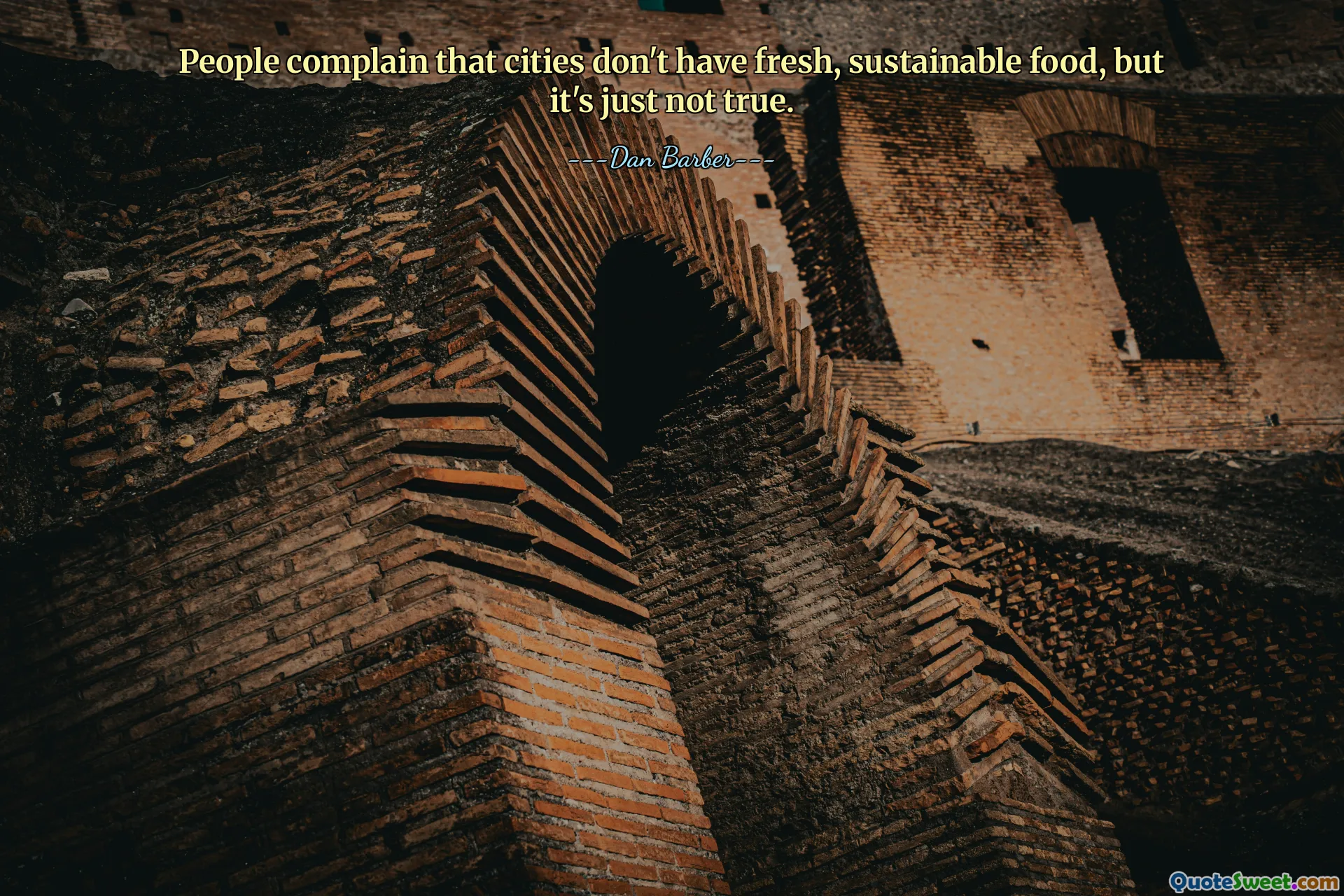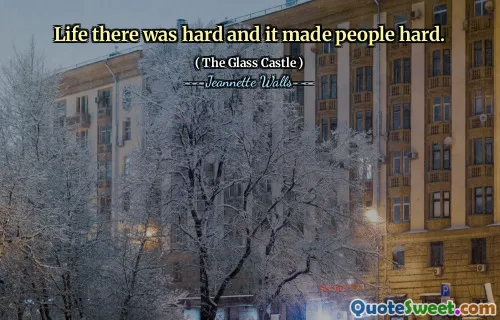
People complain that cities don't have fresh, sustainable food, but it's just not true.
The quote challenges a common perception that urban environments are deprived of access to fresh and sustainable food sources. In many cities, there's an assumption that fresh produce and wholesome food options are only available in rural or less populated areas. However, cities are often hubs of innovation and opportunity when it comes to sustainable food production. Urban farming, community gardens, rooftop gardens, and vertical farms are increasingly becoming popular solutions to bridge this gap. They not only provide fresh produce to city residents but also reduce the environmental footprint associated with transporting food over long distances. Moreover, cities tend to have more concentrated resources, making it easier to organize and implement sustainable food initiatives. The perception of scarcity might stem from issues related to food deserts, economic disparities, or lack of awareness, rather than actual availability. Recognizing the potential and existing efforts within urban settings can inspire more communities to support local, sustainable agriculture initiatives. Emphasizing these capabilities counters the narrative that cities are disconnected from sustainability in food systems. It encourages innovation, community engagement, and policies tailored to making fresh, sustainable food more accessible for everyone, regardless of their location. As city planners, policymakers, and residents become more aware of these opportunities, it paves the way for a more food-secure future rooted in urban sustainability efforts.











